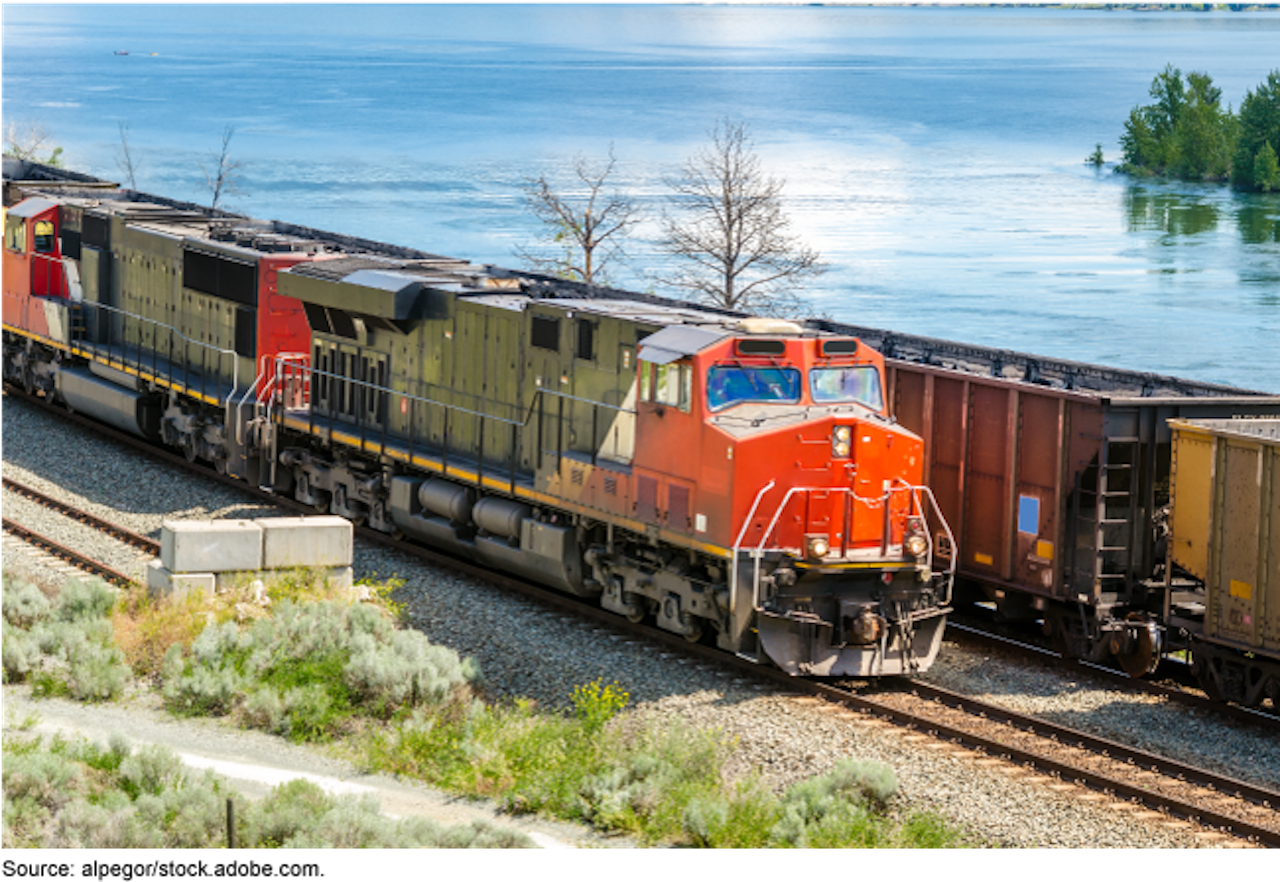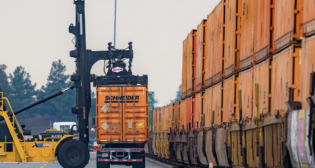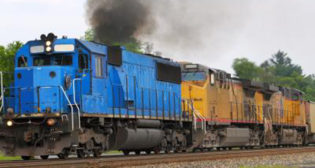
U.S. GAO: Effect of PSR on Rail Safety ‘Unclear’
Written by Carolina Worrell, Senior Editor
According to a recent study released by the U.S. Government Accountability Office (GAO), implementation of precision-scheduled railroading (PSR), a strategy to increase efficiency and reduce costs among Class I railroads, resulted in reductions in staff and assets, such as locomotives, and longer trains, but its effect on rail safety remained “inconclusive.”
The GAO report (downloadable below) examines the effect of PSR on freight rail safety and service at six of the seven U.S. freight railroads that reported implementing the strategy and describes “stakeholder views on operational changes associated with PSR, and what is known about the extent of those changes; the effects of these operational changes on freight rail safety, and what the Federal Railroad Administration (FRA) has done to monitor these effects; and the effects of these operational changes on freight rail service, and what the Surface Transportation Board (STB) has done to monitor these effects.”
Based on data on railroad operations for 2011 through 2021 from the Association of American Railroads (AAR) and STB, the report found that the overall number of Class I staff decreased by approximately 28% from 2011 to 2021. Additionally, all seven freight railroads reported running longer trains in 2022 with the goal of increasing efficiency. GAO interviewed 28 stakeholders, including representatives of railroads, employee unions and shippers for the report.
According to the report, railroad unions and customers identified safety and service concerns from this strategy. The FRA and STB are both pursuing ways to monitor and address potential effects.
According to the report, FRA officials stated that data from 2011 to 2021 are “inconclusive about the extent to which operational changes associated with PSR may have affected rail safety but have taken steps to address potential risks.” Class I railroad representatives, according to the report, generally stated that these operational changes “improved or had no effect on railroad safety.” In contrast, rail safety inspectors and employee unions “identified safety concerns related to reductions in staff and longer trains.”
In response, FRA says it has several efforts underway to monitor the effects of such changes, including analyzing safety data, conducting compliance inspections, and reviewing existing regulations. FRA also has planned efforts to address potential risks, such as employee fatigue and the effects of longer trains. According to the report, FRA’s efforts “may offer important insights into additional actions that FRA and railroads could take to address potential safety concerns identified by stakeholders.”
According to the report, STB data vary, with periods of improvement and decline. STB officials said that the extent to which PSR-associated changes have affected freight rail service is “unclear,” but STB also has efforts to address service issues. Class I railroad representatives stated that service changes associated with PSR were intended to increase the efficiency and reliability of the railroads. However, freight rail customers GAO interviewed identified concerns, such as reduced frequency and reliability of service, and increased fees. For example, according to the study, rail customers stated that “unreliable service can have significant effects, causing production shutdowns and higher costs.” STB is considering further data collection and has held hearings on service challenges. According to STB officials, these efforts “could result in STB decisions establishing new requirements for railroads that may help further address service concerns.”
According to the report, the first freight railroad began implementing PSR in 1998, followed by others from 2012 through 2019. FRA oversees railroad safety and STB is primarily responsible for the economic regulation of freight rail, with jurisdiction over matters including railroad rates, practices and services.
DOWNLOAD THE FULL REPORT BELOW:



